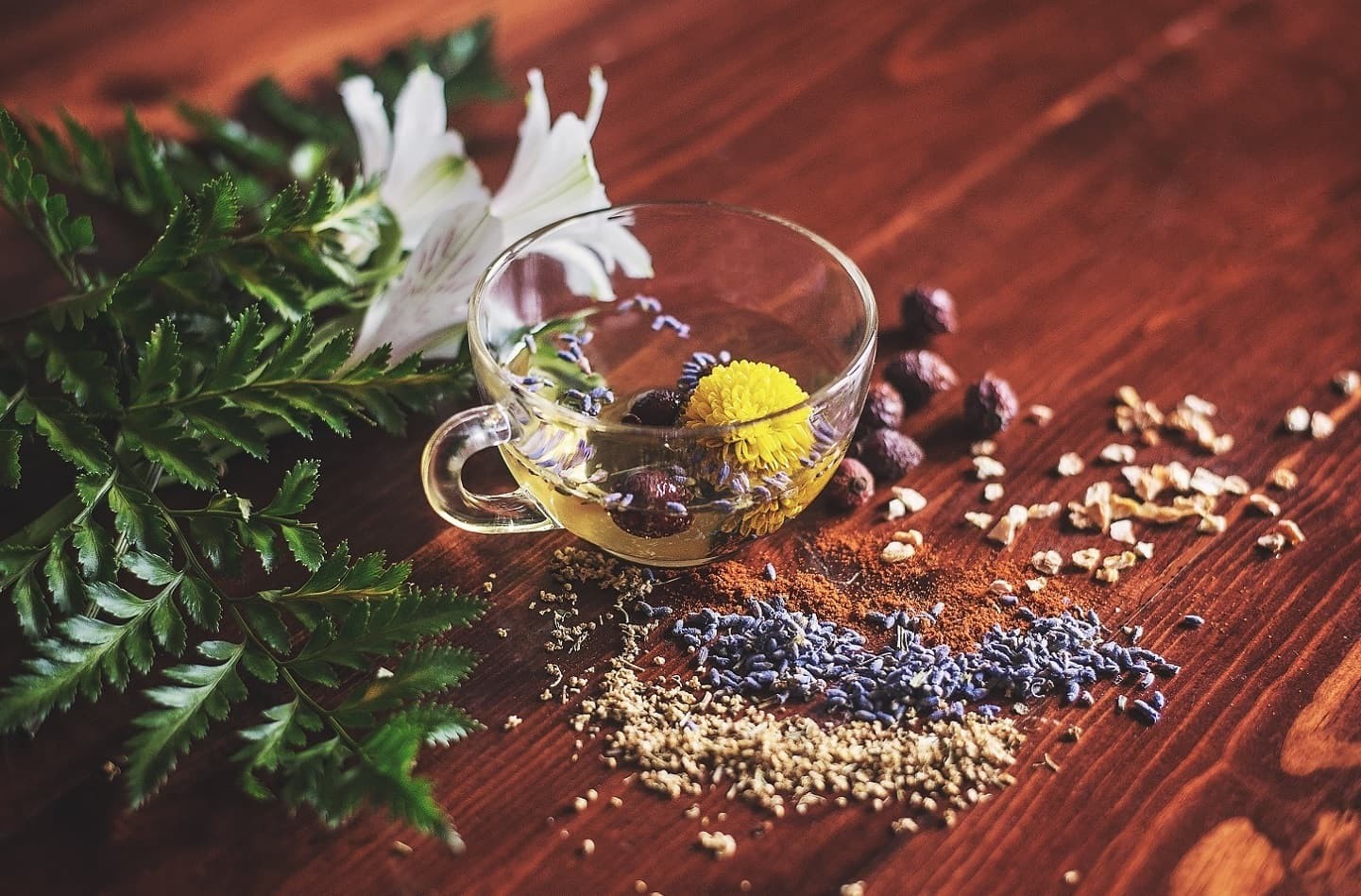
Our hair has aesthetic and protective functions. It enhances our physical appearance, which protects us from negative emotions and behaviours like low self-esteem, anxiety and depression. Thick, shiny hair is the product of a healthy hair growth cycle. However, nutritional deficiencies, stress, hereditary-pattern baldness or a medical condition can cause more hair strands to shed daily.
While there are topical and oral medications available for the treatment of male or female pattern hair loss, many of these come with adverse effects like rashes, itchy scalps, headaches, erectile dysfunction or irregular periods among others. A natural remedy consisting of herbal extracts can be used in the treatment of hair loss without suffering any side effects.
What is Herbal Medicine?
Herbal medicine is a form of complementary therapy that involves the use of plant and plant extract-based remedies to treat illness, disease, and to generally encourage good overall health. There are many types of herbal extracts that can boost healthy hair growth and improve scalp health.
What is Hair Loss?
Hair loss, which is also called alopecia, refers to inexplicable shedding from the head and body. We normally lose 70 to 150 hair strands per day through washing, brushing and combing. However, losing more than the acceptable number may be an indication of some type of alopecia. About 40 percent of the scalp's hair would normally fall out before the thinning becomes noticeable.
Permanent hair loss usually stems from genetic factors, while temporary hair loss may be the result of illness, nutritional deficiencies, stress, hormonal imbalance or fatigue.
How Can Herbal Medicine Help with Hair Loss?
More and more people who are losing their hair are turning to herbal medicine as an alternative to prescription drugs that carry negative, long-term effects. Many herbal remedies incorporate more than one ingredient to produce a herbal cure for hair loss and scalp issues.
Herbs for Hair Loss
There are several types of herbs for hair growth, each with a distinct corrective mechanism to prevent hair loss and stimulate further hair growth. Read on to see which ones might suit you and your hair best.
Algae Extract
Algae carries potent curative powers and is derived from sea vegetables such as seaweed. It is laden with antioxidants, vitamins and minerals, and has long been used as a medicine for the skin and as a tonic for well being. Algae’s amino acids and vitamin content stimulate hair growth and shine, whilst it’s antioxidative properties heal any damage done to the scalp and hair.
Aloe Vera
Aloe vera carries antioxidative and anti-inflammatory properties that may soothe and protect the scalp by restoring moisture pH balance to the hair. It may also be used as a preventative remedy for androgenetic alopecia and stimulate hair growth.
Channelled Wrack (Pelvetia Canaliculata Extract)
Channelled wrack comes from a particular kind of seaweed called Phaeophyta, which may be used to promote hair thickness and stimulate growth. It’s rich antioxidative Isoflavones content may renew the scalp and prevent hair loss in women by inhibiting testosterone binding factors.
Ginkgo Biloba
Ginkgo biloba is a herb that assists in the prevention of hair loss. It does so by increasing blood circulation that delivers nutrients to the hair follicles to stimulate hair growth.
Green Tea
Many herbalists believe that green tea can decrease the risk of male pattern baldness when drunk regularly throughout the day. It is rich in catechins that are believed to inhibit the enzyme 5-alpha-reductase, which causes baldness when overproduced by the prostate, adrenal glands and scalp in both men and women. Green tea extracts also have high amounts of polyphenols that promote good circulation and maintain healthy blood vessels, which prevent premature greying of hair.
He Shou Wu or Fo-Ti
Herbal practitioners in the east have used this Chinese herb for centuries as a remedy for hair loss. It has been shown to stimulate terminal hair growth (and not just fine, baby hairs) and restore hair colour.
Panax Ginseng
Panax ginseng may strengthen and nourish the hair by stimulating circulation and regulating cellular metabolism. One of its potent ingredients called ginsenosides offer numerous benefits for hair and scalp. Research shows that these substances strengthen the hair roots and prevent cell death in the hair follicles.
Pygeum
Derived from the Evergreen tree, pygeum has similar properties to green tea and also works to inhibit the enzyme 5-alpha-reductase believed to cause baldness when overproduced by the prostate, adrenal glands and scalp in both men and women.
Saw Palmetto (Serenoa repens)
Saw palmetto encourages hair regrowth, as well as preventing further hair loss thanks to its high levels of fatty acids that block the enzyme 5-alpha reductase, which is responsible for converting testosterone to dihydrotestosterone (DHT), a type of hormone that shortens the life of hair follicles.
Stinging Nettle
When used in conjunction with pygeum or saw palmetto, stinging nettle may prevent male hair loss by inhibiting testosterone conversion into DHT.
Gotu Kola
One of the most popular Ayurvedic herbs that offers a host of health benefits, gotu kola nourishes the hair follicles and maintains a healthy scalp by increasing blood circulation. As well as being applied topically, Ayurvedic practitioners would also dispense it in the form of powder or tea.
Rosemary
Rosemary is a popular herb among people suffering hair loss or other health issues. Mixing rosemary essential oil with a few drops of jojoba oil (or your preferred carrier oil) and massaging it onto your scalp will stimulate hair growth and hamper the progress of androgenic alopecia. You can also combine a few drops of the mixture with mild shampoo. Drinking rosemary tea daily helps improve blood circulation, which proves to be pivotal in hair growth.
To learn more about other herbal remedies beneficial to hair loss, speak to your naturopath or herbalist. You can also try online herbal medicine consult.
You can also find out about other effective natural hair loss treatments.
Originally published on Apr 20, 2010








